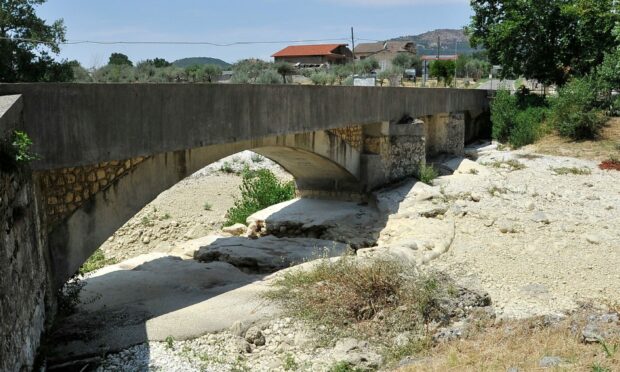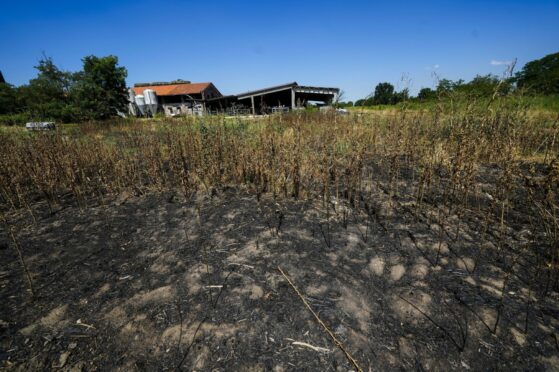The European Commission has warned that the drought facing much of Europe is becoming more severe in terms of its impact on agriculture.
It says 45% of the EU is subject to drought warnings, while alerts apply in an additional 11%, and its drought observatory says parts of the UK are also affected.
Yield forecasts for the EU cereal harvest have already been reduced and the Commission is warning this strengthens the case for action to mitigate climate change.
Among the areas most affected by a combination of drought and high temperatures are France, Spain, Romania, Portugal and Italy.
Meanwhile, EU farm ministers have put a shot across the bows of the European Commission’s green plans to reduce the use of chemical pesticides by 50%.
Green Deal
This is a central plank of its Green Deal and nature restoration policies. But at their last farm council before the August break in Brussels, ministers were more concerned about the impact of drought on current yields and the importance of improving levels of EU food security.
On that basis most welcomed the concept of reduced pesticide use, but made clear legislation should not be imposed until it could be shown that practical non-chemical alternatives were available and effective. Their clear message to the Commission was that sustainability must not be pursued at the expense of food security or competitiveness.
Ukraine
This underlines the degree to which events in Ukraine, as a result of the Russian invasion, have changed priorities in favour of the absolute importance of a secure and affordable food supply.
Already grappling with drought, European agriculture is facing an even more chilling prospect for the winter months. The European Commission has warned that gas supplies across the EU could be rationed as it seeks to move away from years of dependence on Russian gas. Brussels is suggesting a 15% cut from late August until at least the end of March, using the slogan “save gas, for a safe winter”.
The farming and agri-supply industry has stressed the implications for food security, and Copa, the umbrella body for European farm unions, has called for agriculture to be made a priority after schools, hospitals and consumers. The fertiliser industry has also warned that gas availability is key to production and that any interruption will have consequences for prices and availability.
Meanwhile, there has been a general welcome from the industry for a Commission decision to suspend anti-dumping duties on urea and ammonia, but COPA says this should be extended to end to all duties, including on imports from the US and Caribbean.

